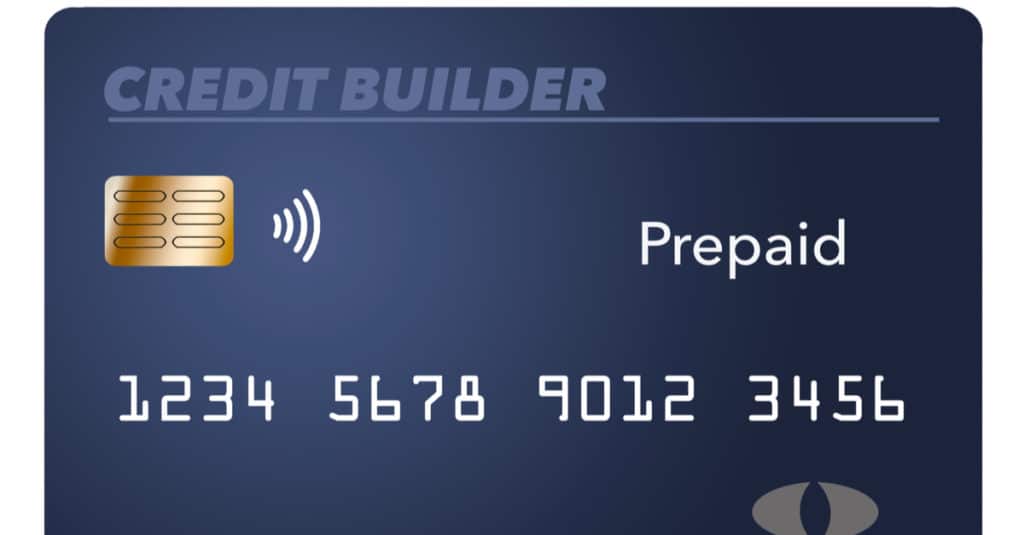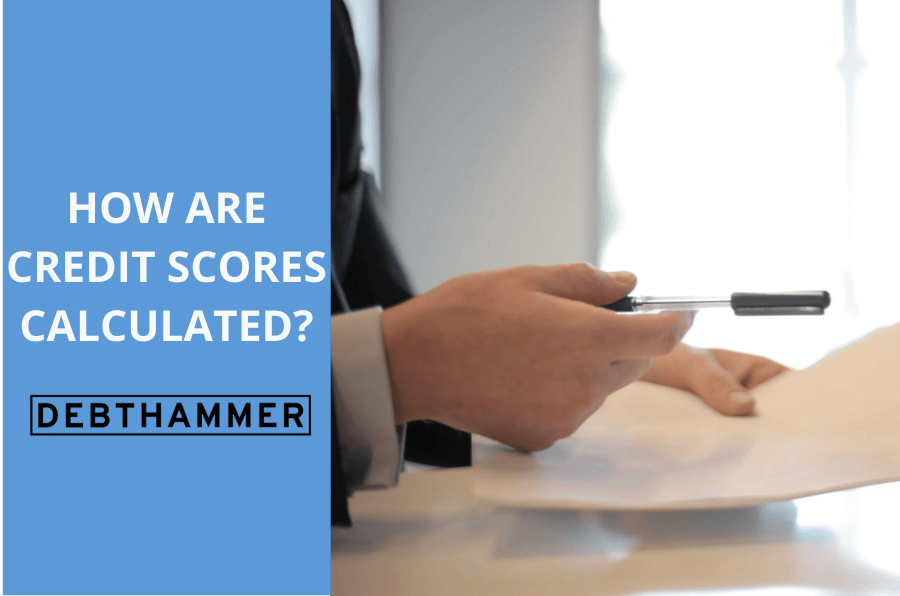What are your options if you have no credit history and want to get a credit card or want to start building your credit? Having no credit history is also known as being “credit invisible,” a designation that affects 26 million Americans.
A credit builder loan may be able to help. They are designed for those with little to no credit history to help build a starting credit score or boost a score that’s less than perfect.
Table of Contents
What is a credit-builder loan?
These are small-limit loan amounts typically less than $1,000, where the money is set aside for you in a secured savings account or CD (certificate of deposit) while you pay off the loan. These loans allow you to build credit while you save money. You make monthly payments with interest for a specified loan term, and once it is paid, the CD unlocks, and you receive the funds, minus any interest and administration fees.
These loans are available at a bank, credit union (a shared secured loan) or through an online lender. The lender reports your monthly activity and payment to the three major credit bureaus that generate your credit rating.
Your credit score doesn’t start at zero. Instead, there is simply no report with any of the three major credit bureaus. While people with no credit will still have some borrowing options — credit cards targeting students, for example — it will be simpler if you have an entry level credit score when you need to borrow.
Credit builder loans can also help people who’ve made a few credit mistakes and are looking for ways to increase their current credit score.
A Consumer Financial Protection Bureau analysis of about 1,500 consumers released in 2020 found that “participants without existing debt saw their credit scores increase by 60 points more than participants with existing debt.”
READ MORE: Looking for a credit-builder loan? Here are the 11 best options
How does a credit-builder loan work?
Some credit unions, community banks, P2P (peer-to-peer) lenders and online lenders offer credit-builder loans, though they may not be openly advertised on the institution’s site.
When looking for a lender, consider the following:
- APR or interest rate. The average annual percentage rate on a credit-builder loan is 10%, but it may be higher or lower depending on the lender.
- Loan terms. Credit-builder loans are installment loans, meaning they must be paid in monthly (or biweekly) installments until the end of the loan’s term or until the balance is fully repaid. Most loan terms range from 6 to 24 months, but some terms can be up to six years.
- Maximum and minimum amounts. Credit-builder loans are relatively small, ranging from around $200 to $2,000. The average loan caps out at $1,000.
- Monthly payments. Since the goal is to build up credit and add some money to savings, the monthly payment is usually fairly low. Interest and other fees may add to the monthly payments though.
- Credit bureau reporting. Reputable lenders should report any and all activity on the loan to one or more of the three major credit bureaus: Experian, Equifax and TransUnion. This will help boost the borrower’s VantageScore and FICO scores.
- Other fees. Most lenders charge a small, upfront fee to open an account. Some also have late payment or early repayment penalties.
- Interest as dividends. Some lenders will reinvest all or a portion of the interest back into the account for the borrower to access once the loan is repaid.
After deciding on a lender, the next step is to create an application and wait to be approved. Once approved, you’ll need to sign a contract and pay the fee to open the account. The lender will then transfer the principal amount of the loan into a secure savings account or a certificate of deposit (CD) they control. The money stays in that account until the loan is repaid in full.
As with any loan, the borrower must make payments on schedule. Some lenders allow early payoff, but doing so will not help build credit. For the duration of the loan, the lender will report to the credit bureaus, which will help the borrower slowly establish or repair their credit.
Upon repayment of the loan, the lender either transfers account ownership to the borrower or wires the money to another account. The borrower may decide to use the money or let it build interest.
Credit-builder loans are considered secure loans because the lender holds the money as collateral. Since the borrower doesn’t have access to the money until the end, there is little to no risk to the lender if the borrower defaults on the loan. This is one of the main reasons why lenders are willing to work with consumers with bad credit.
Does a credit builder loan require a credit check?
Different lenders have different policies. They will fall into one of three categories.
- No credit check is required. Some credit-builder loans require no credit check at all.
- A soft pull, which does not affect your credit.
- A hard pull, where a lender will view your entire credit report. A hard pull will temporarily reduce your score.
If a lender does check your credit, the required score is usually low.
What are the other requirements for a credit builder loan?
These are the most common requirements:
- You will have to be 18 or above.
- A Social Security number is required.
- You will need to be a U.S. citizen or be a permanent U.S. resident.
- You’ll need a bank account, debit card, or prepaid card to make payments.
- Proof of income is required.
Some lenders may have additional requirements.
How to manage a credit-builder loan
Managing a credit-builder loan – or any kind of debt – can seem challenging at first, especially if you’ve never had a loan before. Here are some ways to make it easier to manage.
- Select the right type of loan with a payment plan you can afford. Missed or late payments can hurt a credit score, so choose a loan that fits your budget. Calculate the interest and any other fees to avoid getting blindsided later on. Also, start with a shorter loan term (no more than 24 months).
- Make on-time payments. Payments made 30+ days after they’re due can seriously damage your credit score. But regular, on-time payments will help build credit over time. Consider setting up automatic payments to stay on track.
- Keep track of your credit score. There are multiple websites, such as Credit Karma, that allow consumers to monitor their credit score. If you have a credit card or another open line of credit, the lender may also offer a way to check your credit score. Alternatively, go to one of the official credit bureau’s websites for a free annual credit report and up-to-date FICO score.
- Make a financial plan for the money. Before paying off the loan, decide how you want to use the money. It could be an emergency fund, or the start of a savings account, for example.
Pros of credit-builder loans
- Credit-builder loans help borrowers establish or repair credit.
- Credible lenders report to one or all three of the major credit bureaus.
- They typically have minimal requirements, especially compared to traditional loans.
- Borrowers receive the full amount of the loan in a lump sum once it’s fully repaid.
- Some lenders place a portion of the loan’s interest into the account for the borrower.
- The balance in the account accrues interest for the duration of the loan.
- Credit-builder loans are usually easy to manage with small installments.
Cons of credit-builder loans
- There may be interest, though it’s smaller than most other loans.
- The longer the loan term, the higher the overall interest.
- There may be a nominal fee to open the account.
- Managing a loan may be difficult without a good budget and solid repayment plan.
- Late or missed payments could damage the borrower’s credit score.
- Some lenders require proof of income.
- Credit-builder loans don’t help with financial emergencies or monthly cash flow.
How fast do credit builder loans build credit?
It will take about six months of credit activity to establish enough history for a FICO credit score, used in 90% of lending decisions.
How to manage a credit builder loan
● Choose the right type with a payment you can afford.
● Do not make late payments, or put it on autopay, so you never miss a payment.
● Monitor your credit score.
● Make plans for how you’ll use the money you get back when your loan is fully paid. Using the money toward an emergency fund would be a wise move.
Tips for using credit builder loans to build good credit
● Keep tabs on progress by monitoring credit reports
● Pay your credit builder loan on time, every time, without exception; use autopay
● Pay off your loan in full by the end of the loan
How much do credit builder loans cost?
A credit builder loan can range from $300 to about $1,000. Here are some things to research:
- The annual percentage rate (APR)
- Interest payments
- Other fees and costs: The loan repayment term. The longer your loan term, the more interest you’ll pay. Administration and prepayment penalty fees.
- Maximum and minimum loan limits
- What is the monthly loan payment, and is it affordable?
Can you get a credit builder loan with bad credit?
Yes, because the bank is holding your money as a form of collateral.
Why does a credit score matter?
Lenders will use your credit scores to determine your creditworthiness. These scores dictate whether you get the loan, your credit limits, and the rate you will pay. Insurers also use credit scores to set premiums for auto and homeowner coverage. A higher credit score usually will let you skip security deposits for utilities or additional landlord security.
How do I check a credit score?
It’s essential to be on top of your credit history. Monitor your credit report regularly, check for any inaccurate or incomplete information, and immediately dispute or correct any errors. You can pull your credit report at Annualcreditreport.com.
Other options or financial products to help you build credit
- Secured loan: A secured loan is a loan backed by collateral, financial assets you own, like a home or a car. These loans not only allow you to use a financial institution’s funds, but they can also help you create a positive credit history.
- Authorized user: Ask a family member to add you to a credit card account as an authorized user. Make sure it is a person with good credit, and always repay them for what you spend. Focus on a payment plan: The primary cardholder is responsible for paying the bill, but any missed or late payments will appear on both parties’ credit reports.
- Secured credit card: A secured credit card requires you to put down a deposit with your card issuer before being granted a line of credit. Credit issuers use this deposit as collateral if you’re unable to pay your credit card bill. In most cases, your deposit amount is equal to your credit limit. So, if you put down a security deposit of $500, your credit line will also be $500.
- Installment loan: An installment loan is funding you get in a lump sum and pay back over a set period. Loan amounts for unsecured installment loans or personal loans can vary. One caveat is some installment loans are not much better than payday loans. Be sure to check the interest rates.
- Experian Boost: This program gives you credit for bills like your phone, utilities, and popular streaming services for free. All you need to do is answer a few security questions and connect to your bank. Any bills you add will need to have three months of payments within the last six months and have to be in your name.
The bottom line
There are many benefits to building and maintaining a good credit history. For one, you get access to lower interest rates. It’s also essential to understand how credit works. Once you know how to get a good credit score, you’ll be able to take advantage of all of the positive financial opportunities associated with good credit.
FAQs
Not all require a credit check. Check the loan requirements of each lender.
Yes, so you will be able to make monthly payments to the lender for the life of the loan.
Lenders may limit the number of loans or the total amount of money they’ll give you. You can have more than one loan at a time, but consider whether you can manage the extra debt. You’re more likely to be blocked from getting multiple loans by the lender than the law.
Most will have some fee. Check the lender website for specific details.
Because many life decisions revolve around your credit, like taking out a mortgage, opening a credit card, renting, and buying a car, it is crucial to building a good credit score.



